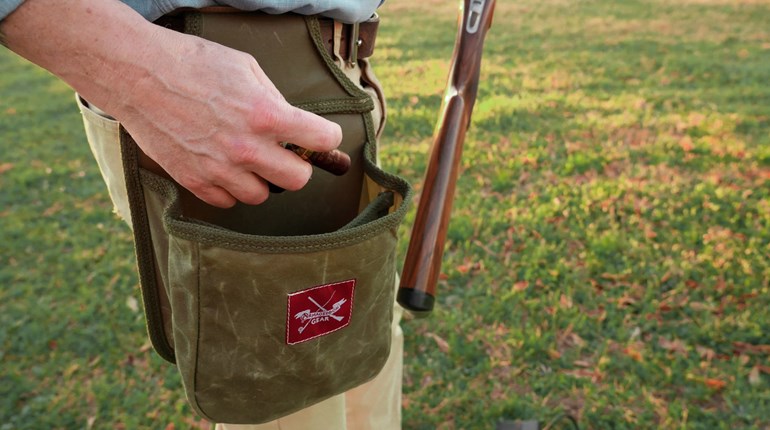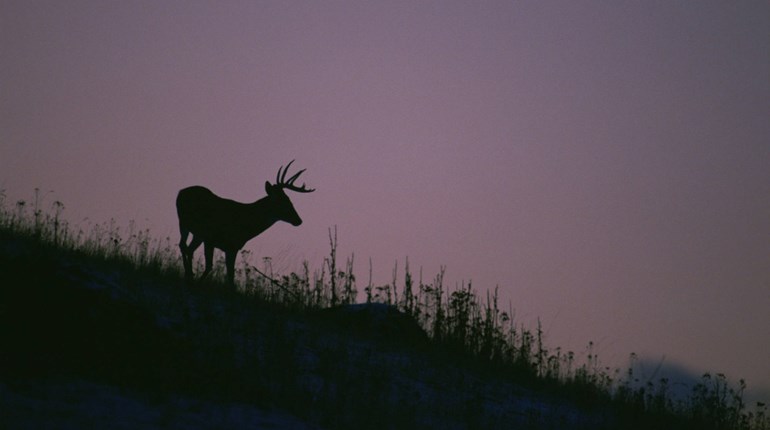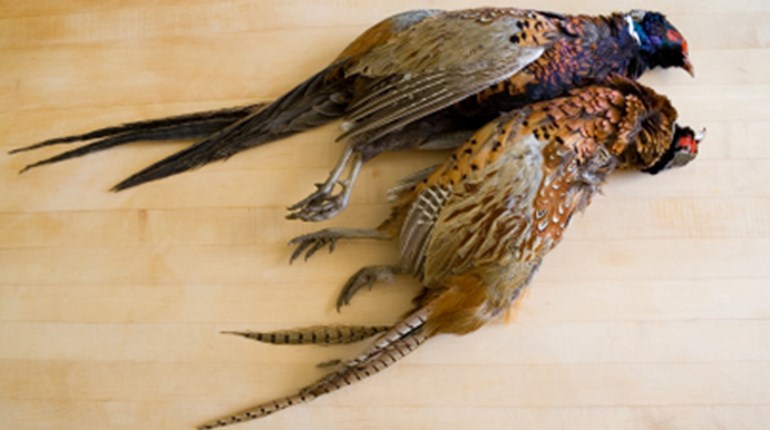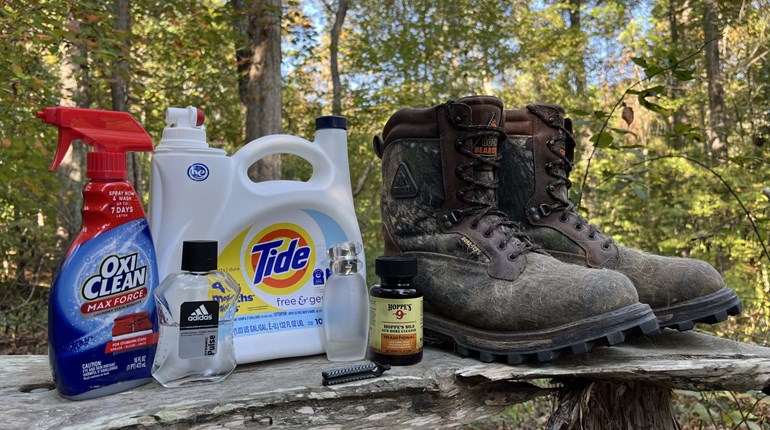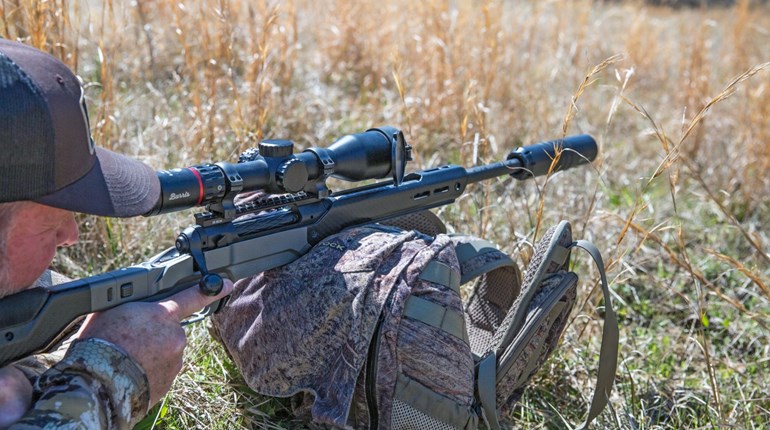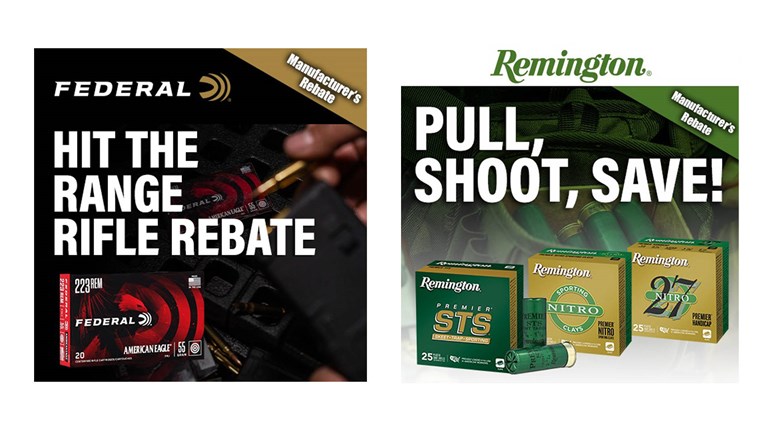I think it was reading American hunting literature while growing up, such as Townsend Whelen’s 1906 classic “Red Letter Days in British Columbia,” which instilled a deep craving for me to experience a horseback hunting adventure. But, then again, maybe my mother dropped me on my head when I was born.
I believed that the romance of penetrating deep into the wild Rocky Mountains on the back of a noble beast of burden was surely the epitome of the wilderness adventure. It brought visions of creaking saddles, bugling elk, rutting moose and surly grizzlies. A horseback hunt meant sleeping under the stars, drinking from pure mountain streams and roasting the day’s kill over an open fire. It was the breathtaking beauty of mountain vistas that few have witnessed, and the special feeling that independent hunters have when it’s just them against the world. Without question, a wilderness horseback hunt represents the ultimate freedom and the ultimate hunting experience.
It’s just that now, after having done a bunch of them, I find I deeply regret that you must use horses.
My friend Russell Thornberry once wrote that at the end of every hunt involving horses the client should have the option of shooting the horse, because at the end that’s the critter he most wants to kill.
Here are a few reasons why I agree with him.
So You Think You Can Dance?
The outfitter said “bring a gun case” so I did. It was a brand new and very expensive aluminum double rifle case with a high polish on the outside that my wife could use to apply makeup. It never occurred to me that he meant a soft case.
The outfitter had special permission to pack the rifles through Yellowstone Park, but they had to be cased and inaccessible. Apparently, giant metal gun cases do not fit well on pack horses. Who knew?
After a cowboy-style verbal smack-down that left me feeling like a foolish Easterner, they tied the case on top of a giant pack on a tall horse and we mounted up for the 25-mile ride into camp.
Ten miles later the trail passed through a washed out section that left a high bank on one side. The pack horse hugged the bank and an exposed root grabbed a rope and pulled the pack down over his belly. Thinking the pack was trying to eat him, the horse reared back and started bucking. This pulled on the rope that was tied to the tail of the horse in front of him. I don’t know if that horse thought something was trying to eat him or sexually assault him, but he acted appropriately to either situation by kicking and bucking. The rope tied to the next horse pulled tight and . . . well, now you know how “a wreck” happens.
My gun case fell out of the pack and landed in the center of the tail. The horse that had been carrying it stepped on the case, reared up on his back legs and did an impressive Irish jig. A few minutes later, the horse in front bumped into him, knocking him off the gun case, and then that horse stepped up to do the Jitterbug.
It wasn’t until the first horse smacked him down and climbed back on my gun case that I realized we had a dance-off going on. Sticking with the Celtic theme, this time he did a great rendition of a Scottish Highland Sword Dance, while the cowboys clapped rhythm and yelled words of encouragement. A few minutes later the second horse reclaimed the dance floor to execute some kind of break dance that ended with him lying on my gun case, feet in the air and spinning in circles.
This went on through the Dougie, Texas Two-Step, Tango, Electric Slide, Twist and even the Chicken Dance before some cowboy started yelling about “burning daylight.”
I can’t tell you which horse won because of their inbreeding. I am pretty sure they are all related because the cowboys call them all by the same name, “You #$%#@*$*#$!”
The case looked like a road kill. It was gouged, dented, bent and scraped. In the carnage you could clearly see several horseshoe-shaped dents that looked like the footprint diagrams for dance steps from the Arthur Murray Dance School for Horses.
“Don’t Kick Horse”
I already hated this horse. Every time we went by a tree, he would slam my knee into it. I was a bit green back then and didn’t know how to fix the problem. My “First Nations” moose guide was a mute as far as I could tell and never answered any of my pleas for help. So I solved the problem as best I could. A few hours and several lessons later, my guide spoke.
“Don’t kick horse,” was all he said before riding off again.
The horse had gotten the message by then anyway and we were getting along pretty well.
Until I saw the ravens.
As was his style, the guide had ridden so far ahead I had no idea where he was. There were ravens circling and making a ruckus just over a little rise to my left and I was very curious about why and decided to look. Not wanting to be left too far behind, I urged the horse to hurry and we topped the hill at a trot.
On the other side was a dead moose with a huge sow grizzly bear and two large cubs feasting on his remains. Thinking (correctly this time) that the bears wanted to eat him, the horse reacted instantly by swapping ends and charging off at a gallop. I reacted by continuing my forward momentum, which launched me off the horse and onto the ground in front of the bears.
This was Canada where handguns are considered evil; my rifle was in a scabbard attached to the horse. Kicking a raging grizzly didn’t seem like as good an idea as kicking a horse, and I completely forgot I had a knife on my belt. (It’s a damn fool who brings a knife to a grizzly fight anyway.)
I sat on the ground trying to breathe while the big sow approached with her front feet turned in, popping her teeth and huffing threats. My only thought, other than “so this is how it ends,” was that if I survived and got my rifle back I was going to shoot that damn horse.
About the time I could smell her breath, the two cubs broke rank and ran away. The sow looked at them, then back at me before roaring something in bear talk that I think meant, “This is your lucky day little man, I am not going to kill you this time, but you really should get a better horse.” Then she turned, kicking dirt on me as she ran after the cubs.
Half an hour later I was walking up the trail when the guide came the other way leading my horse.
“Told you. Don’t kick horse,” was all he said before he dropped the lead rope, turned and rode away.
I was reaching for my rifle when I realized that camp was about 10 miles away. So, I decided to shoot the horse later. Instead, I climbed stiffly into the saddle and followed my suddenly chatty guide up the trail.
Photoshocked
The vista was magnificent, so I decided to take a photo. I hung the reins on the saddle horn and pulled a camera out of my jacket. The horse, being a horse, did whatever he wanted. Which was to walk off the trail and over to a clump of grass that looked like any other clump of grass to me, but clearly had special meaning to the horse.
I gave up on the idea of a photo and put the camera back in my jacket just as the horse dipped his head to eat. The reins came off the saddle horn and fell over his head and, being a horse, he stepped on them.
That caused him to panic (I suppose because he thought his special clump of grass was now trying to eat him) and start to bob his head up and down as he spun in a circle, pivoting on his front legs. I have no idea why he didn’t just step off the reins other than he was a horse. But he didn’t, he just kept jerking his head up and down and kicking with his back legs. The more he did it, the more the reins tugged and pulled and the more panicked the horse became.
I leaned forward to grab the reins just as he made a particularly hard jerk and the last thing I remember seeing was the reins breaking. That, of course, freed his head to continue its backwards trajectory on a path that met my head’s forward path someplace in the middle.
I woke up lying in the mud and ringed by laughing cowboys.
Apparently there is something in the cowboy mentality that deems a horse’s head hitting a hunter between the eyes hard enough to knock him backwards off the saddle as the height of hilarity.
“Are you dead?” one asked me with a giggle.
“I think so,” I croaked while spraying blood with each word.
“Nah, you ain’t dead. You’re still bleeding, that means your heart is pumping,” he said as he walked away laughing hysterically.
Before I blacked out again I heard another one say, “Did you see that? He did a double back flip out of that saddle, spraying blood out of his nose like one of them skywriting airplanes. It’s the most Western thing I have ever seen!”
I rode out to the trail head, holding the short reins in one hand and my leaking nose in the other, while they roared laughter at my blood loss and head injury.
Tough bunch, those cowboys.
Batting Practice
For years horsehide was used to cover baseballs because it is tough. But on one Montana elk hunt, I learned it’s best to remove it from the horse before trying to knock one out of the park.
Forget that the hunt was a disaster. The outfitter promised trophy bulls for every hunter, gourmet food, fine wines and plush backcountry accommodations. Instead he delivered no elk, inedible food and a guide who got lost the first day.
The horses had been run hard all fall on family trips. The kind where soccer moms and undisciplined kids torture the horses and make so much noise that all the elk move to Idaho.
This was the first hunt of early elk season, but already the horses were tired, worn down and jumpy as a virgin at a prison rodeo. We had two guys tossed off in the first two days. One of them was almost crushed when the horse tumbled down the hill after him. I had a rodeo at the corral and took a chewing-out from the wrangler who didn’t have the facts and didn’t want them. I didn’t do a thing, my horse was just nuts. Which should have been a warning flag.
A few days into the hunt we picked up a little snow and decided to ride until we cut fresh elk tracks. The guide liked that idea because we didn’t have to leave the marked trails. Ten miles from camp, still not finding proof of life for elk, we called it quits.
The snow had bent a large sapling over the trail and the rider in front of me raised it above his head as he rode past. Then he decided to hold it up for me and my horse to pass. It might have worked too, except his horse just kept plodding along.
I screamed at him to hold on while I tried to get my horse to turn off the trail. But the underfed knothead had decided that the sapling looked like something good to eat and ignored me.
My friend was a strong guy, but everybody has limits. The tree was bent like Genghis Khan’s bow when it finally pulled free of his grasp. It snapped back and hit my horse on the forehead so hard it sounded like Babe Ruth swatting a grand slam.
The horse erupted and started bucking like a bareback champion. I hung on for a while, proud of my skills. I was actually thinking I was going to ride it out (silly me) when he turned from the trail and into the trees. A big limb hit me while I was in midair and when I came down I hit ground instead of saddle. The horse was tangled in the branches and stepped on my left leg. The horses call that “ground and pound.” My backpack was hanging off the saddle and was caught in the brush, restricting the horse to bucking in place. As it turns out, it was the same place I was occupying. I dodged hooves until the horse finally noticed the problem, looked at the backpack and decided it wanted to eat him. The last thing I saw was the horse running away, my backpack shredded and spewing its contents like an equine-mounted snow blower.
I lay back in the snow and took inventory. Other than my leg hurting a little, I felt like I was okay. Thinking I had dodged a big bullet, I tried to stand up. Something popped in my back and the world turned white with pain. I fell face first back into the snow and started searching for my happy place.
I don’t know how long I writhed in the snow screaming that I would shoot the first cowboy who said “we’re burning daylight,” but when I looked up my partners had built a shelter and were roasting a rabbit over a bed of coals.
I tried to climb back in the saddle and, failing that, I just started walking. I don’t remember much about the next several hours, but somehow I made it to my tent.
I suppose I had insulted the cook that morning when I challenged anybody at the table to identify the “food” on my plate and nobody, including the cook, could do it. But I thought that little reason not to feed an injured man. I would have starved if one of the other hunters had not sneaked a plate of scraps to me after the cook went to bed.Four days later I still could not ride, so I walked 16 miles back to the trailhead. I passed the hours playing word games in my head and inventing new cuss words to call horses.
It was kind of fun actually.
Here are some of them.
It’s a Drag
I drew the short straw again, metaphorically speaking, and was issued a horse named “Mongo.” His namesake from the movie “Blazing Saddles” was described as, “more of a what than a who; Mongo is a tall, violent, unintelligent creature with superhuman strength and a bullying nature,” which pretty well summed up this horse.
The outfitter had asked another guide to show us a new area the next morning, but being a bit of a jerk, the guy left without telling anybody. So we raced up the pitch black trail trying to catch him. My guide was a horse trainer and had brought a fresh, young stallion with long legs and youthful energy, so he soon pulled well ahead of me and the plodding Mongo.
A snowstorm was moving in, daybreak was hours away and it was as dark as a coal mine at midnight. True to his namesake, Mongo wasn’t all that bright and it was some time before he realized we were alone. That’s when he panicked and started running up this narrow, steep and twisting mountain trail.
Mongo ignored my attempts to slow him down and soon we were at a full gallop. I was getting whipped in the face by branch after branch, which, on a cold day, does nothing to improve your mood. Suddenly a big limb knocked me out of the saddle. I hung on to the reins while the left stirrup hung on to my boot. Mongo took that as a signal to run faster.
I was swinging beside him, trying hard not to get stepped on while I smashed into trees, bounced off rocks and splashed through mud holes. (At least I hoped it was mud. There had been a lot of horses on this trail in the past few weeks.)
I finally worked myself around where I could get some power into the reins. I was full of adrenaline and mad as hell, and I pulled as hard as I could, thinking, “This horse will stop or I’ll break his damn neck.”
Mongo, realizing he was just a pawn in the game of life, stopped. I slipped my foot out of the stirrup and lay panting in the mud for a while before standing up. I was brushing myself off and checking for broken bones when the guide came back.
“What the hell are you doing off your horse?” he yelled at me. He started saying something about “burning daylight” even though it was still as dark as Hitler’s heart, but I had reached my limit. I exploded so loudly that the guys we were trying to catch stopped half a mile ahead, turned around and came back. They said they were scared not to.
The guide was smarter than the horse and just let me rant. Which is why I was a bit upset that night when I watched him die.
He took the wrong trail, one that had not been cleared of blow-downs for years. He was behind his young, un-broke horse pushing while I pulled, trying to get the foolish beast to step over yet another of the hundreds of logs that blocked our path back to camp. When he did, the horse’s belly brushed the log and he thought it was trying to eat him. The stallion whipped his head and backed up so fast I was pulled airborne by the lead rope and I watched from an elevated position as the horse crashed over the guide, stomping at least twice on any important part. I knew it was not survivable.
“Damn,” I remember thinking. “This is going to make us even later and I am getting pretty hungry.”
But, before I could get the body tied across the saddle, it reanimated. This was before the whole zombie thing, so all I could think to do was hand him his cowboy hat. He brushed it off and put it on his head. Then he stood up and, spewing blood as well as a stream of bad words, he limped over to the horse and started leading him back to the blow-down.
Which pretty well sums up hunting on horseback: It seems like all your time is spent bleeding, limping, cussing or dodging death.
I ask you, where’s the romance in that?












